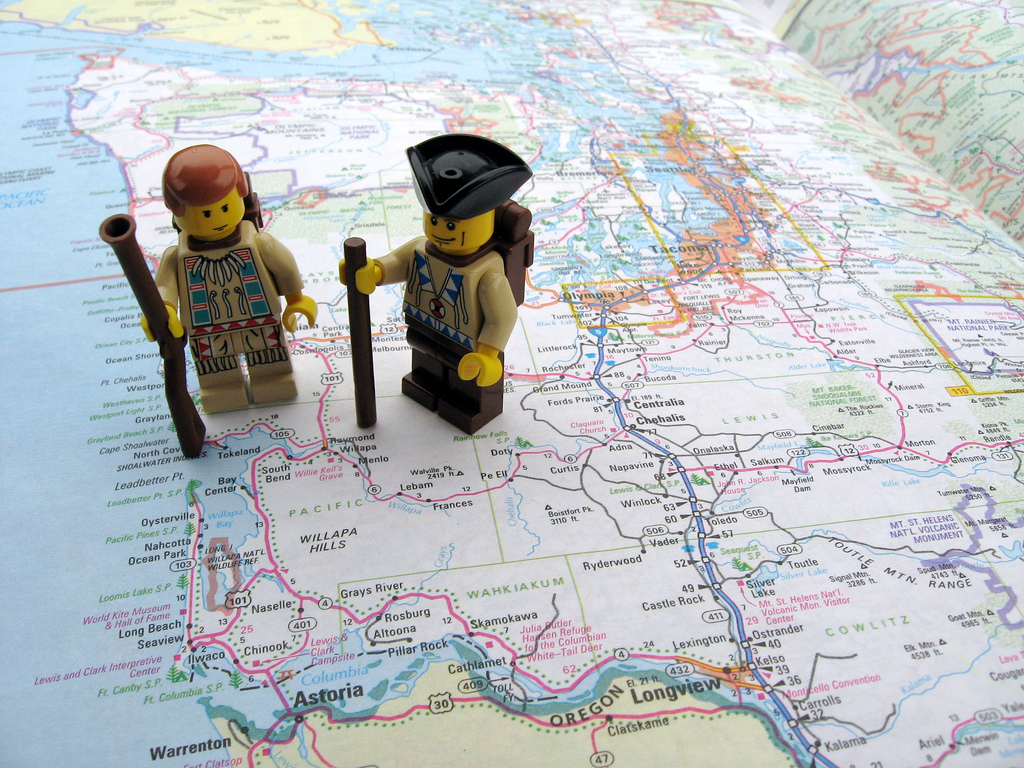
We’ve seen a great deal of speculation in the past week about Apple buying a company to help it solve its nagging mapping headache. The big rumor, both started and squashed by TechCrunch, was Waze, the crowdsourced mapping and traffic app.
[aditude-amp id="flyingcarpet" targeting='{"env":"staging","page_type":"article","post_id":598965,"post_type":"story","post_chan":"none","tags":null,"ai":false,"category":"none","all_categories":"business,entrepreneur,mobile,","session":"A"}']The only problem with that theory? Waze would only slow Apple down.
At least, according to Skobbler’s Marcus Thielking. He’s the cofounder of Skobbler, a spinoff from Navigon that sells one of the top mapping solutions in the world: GPS Navigation 2. It’s got a No. 1 sales ranking in app stores in 20 countries and has sold more than three million copies. It’s also based on OpenStreetMap, the crowdsourced “Wikipedia of maps.”
AI Weekly
The must-read newsletter for AI and Big Data industry written by Khari Johnson, Kyle Wiggers, and Seth Colaner.
Included with VentureBeat Insider and VentureBeat VIP memberships.
“There are only two companies that could possibly make sense for Apple to buy,” Thielking said this morning from Europe. “There’s Garmin, which doesn’t use TomTom, on which Apple Maps is built, and there’s TomTom itself. TomTom would be my bet.”
The problem that Apple faces? Buying just any mapping company is not a solution. Apple needs a quick fix — something on the order of months, not years — and buying a company with an incompatible dataset or base technology would ensure a long, painful integration process.
And the core mapping technology is not even what Waze is focused on anymore, according to Thielking, who sees Waze as having pivoted from its initial vision of mapping toward traffic solutions for drivers. That’s significant, because the hard part of mapping is not necessarily the basic grid of the roads: It’s the details in navigation and the richness of local data.
That hard part is why Skobbler uses OpenStreetMap data. With more than a million contributions as of today or tomorrow, the dataset is unsurpassed in some regions — especially in hyperlocal data — and growing quickly in many others. But Apple can’t use OpenStreetMap, according to Thielking, since as a global company it cannot simply focus on the areas where OSM has good data — it needs a global solution with a fairly high global level of quality.
And it needs that solution quickly.
[aditude-amp id="medium1" targeting='{"env":"staging","page_type":"article","post_id":598965,"post_type":"story","post_chan":"none","tags":null,"ai":false,"category":"none","all_categories":"business,entrepreneur,mobile,","session":"A"}']
“Owning a digital map these days and especially in the future is an incredibly valuable resource. It’s very hard to copy and very fundamental to everything, particularly in an era of mobile solutions and mobile data,” Thielking says. “That is why Google is doing what they’re doing … and it’s one of the reasons why Apple is in this space.”
Apple wanted to trump Google’s mapping product, but blew it in terms of recognizing the massive complexity of any mapping product, Thielking told me.
All of which means that if there’s any company that Apple might or should be looking to acquire, it would be TomTom.
photo credit: Dunechaser via photopin cc
[aditude-amp id="medium2" targeting='{"env":"staging","page_type":"article","post_id":598965,"post_type":"story","post_chan":"none","tags":null,"ai":false,"category":"none","all_categories":"business,entrepreneur,mobile,","session":"A"}']
VentureBeat's mission is to be a digital town square for technical decision-makers to gain knowledge about transformative enterprise technology and transact. Learn More